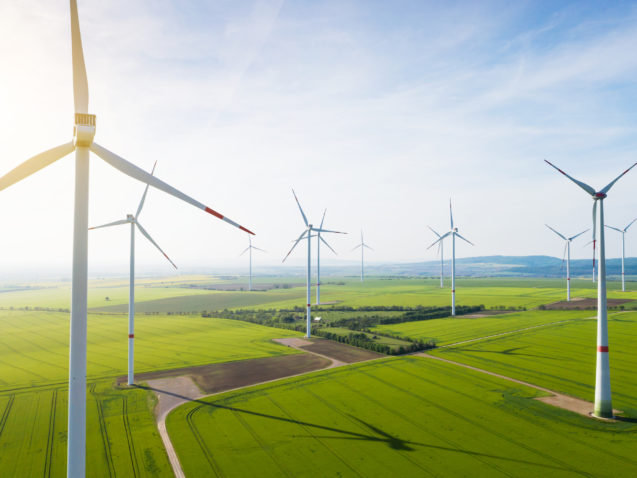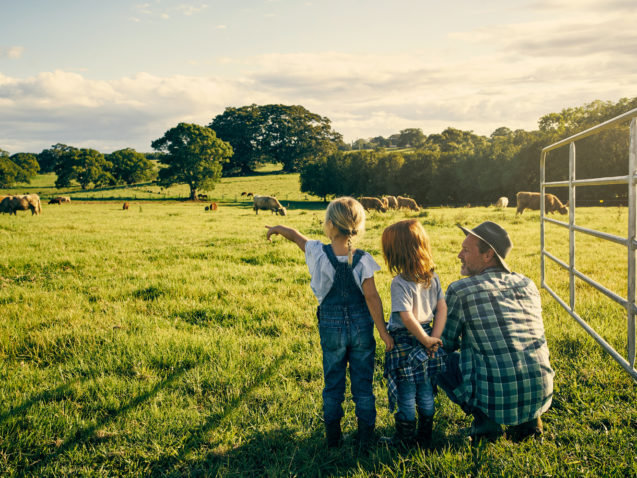Between 2008-2018 the food and drink industry achieved a 21% reduction in carbon emissions per unit of value added (Eurostat, 2021). This means we are getting more and more efficient at producing food and drink products!
As Europe’s largest manufacturing industry, the food and drink industry is slashing its carbon footprint, reducing energy consumption, and unlocking the Circular Economy. But the Intergovernmental Panel on Climate Change latest report from last August is alarming: climate change is widespread, rapid and intensifying. So, like every other sector, food and drink manufacturers need to do more, and to do it urgently.
WHAT IS THE SITUATION?
In Europe today, emissions from the food and drink manufacturing process are estimated to stand at around 94Mt CO2e/year, which represents 11% of the entire agri-food chain. For context, this is slightly less than the total emissions of the country of Belgium.
The EU has committed to reaching net-zero emissions by 2050 and as part of this target aims to achieve a 55% reduction in emissions by 2030. With just nine years left to reach this milestone, we need to act sooner rather than later.
That’s why, FoodDrinkEurope commissioned a decarbonisation study back in June 2021, which provides a roadmap to decarbonising our industry. There are over 90 concrete actions that manufacturers might be able to consider depending on their size, their geographical location or the processes they use.
WHAT’S OUR AMBITION?
Actions such as these, whether it’s decarbonising our heating and cooling systems or lowering power consumption, will help our industry contribute to the EU’s Green Deal goals.
Our industry is working to achieve carbon neutrality by 2050 with many of our members setting targets for even earlier.
WHAT ARE WE DOING ABOUT IT?
In addition to our decarbonisation report, FoodDrinkEurope and the food and drink industry as a whole, have been hard at work shaping the path towards more sustainable food systems.
Code of Conduct
We led the taskforce to develop the EU Code of Conduct on Responsible Food Business and Marketing Practices. The Code was developed with a diverse group of stakeholders, from public authorities, retailers, farmers, consumers, and trade unions.
The Code is one of the first deliverables of the Farm to Fork Strategy. It sets out common aspirational objectives and targets for more sustainable food systems, including a climate-neutral food chain in Europe by 2050 and the prevention and reduction of food loss and waste. Commitments made under the Code will be monitored by the European Commission and subject to public scrutiny.
Today the Code can boast nearly 90 signatories, from EU associations to companies from the middle of the food chain … and it’s growing every month!
Companies signing up to the Code have committed to individual and concrete climate actions. Here’s a snapshot of some our industry’s climate-related Code of Conduct commitments:
- Coca-Cola – reduce emissions by 25% by 2030 and trajectory to net-zero in major EU markets by 2040
- Danone – reduce absolute scope 1 & 2 emissions by 30% by 2030; source 100% renewable electricity by 2030; achieve net-zero by 2050
- DSM – reduce emissions from production and energy supply by 30% by 2030; achieve 75% electricity by 2030; reduce indirect emission by 28% per tonne of product produced by 2030
- Ferrero – reduce absolute scope 1 & 2 emissions by 50% by 2030; reduce scope 1,2 & 3 emissions intensity by 43% per tonne of product by 2030
- Kellogg’s – reduce scope 1 & 2 emissions by 45% by 2030
- Kerry – reduce absolute emissions by 33% by 2030; achieve net-zero by 2050
- McCain – reduce Co2 per tonne from farming, storage, and freight by 25% by 2030; source 100% renewable electricity by 2025; reduce Co2 emissions by 50% by 2030
- Mondelez – reduce absolute emissions by 10% by 2025
- Nestlé – reduce 4.2m tonnes CO2e by offering more sustainable options and reduce 1.4m tonnes CO2e by shifting towards sustainable ingredient alternatives, both by 2030; reduce emissions by 20% by 2025 and 50% by 2030 and a target of net-zero by 2050; planting 20m trees every year for the next 10 years; reduce emissions per tonne kilometre of transported by 11% by 2025 and 35% by 2030; achieve 100% renewable electricity by 2025
- Unilever – protect and regenerate 1.5m hectares of land, forests, and oceans by 2030; achieve net-zero emissions for all Unilever products from sourcing to point of sale by 2039
- And many more…
Office carbon plan
At FoodDrinkEurope, we are not just supporting our members as they look to cut their emissions across Europe but we are also conscious of our own impact on the environment, here in Brussels.
That’s why we’ve joined forces with CO2 Logic, a dynamic Belgian-based start-up helping organisations like ours to develop a unique four-step approach to carbon-neutrality. My colleague Lorenzo Ferrucci has more.
WHAT’S NEXT
As we countdown to COP26 in Glasgow, we want to impress upon policymakers the urgency of the climate challenge in front of us and to align EU legislation with global climate actions.
That’s why the Fit for 55 package is so essential to achieving our climate goals. It is important to emphasise that the implementation of decarbonisation targets will require a significant transformation of the industry and that public authorities will need to support enterprises in this transition. Policy coherence between proposals within the package will remain key.




